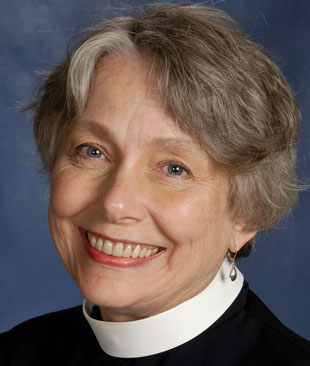Many Kinds of Body Language for Prayer
"I'm not convinced it's necessary to choose one body language for your spiritual self-expression, any more than you would want to confine yourself to the same set of words over and over again. I feel comforted and nurtured praying in my lovely bath, but I also like to stand and pray — it reminds me that God's image lives in me, and I am strong and joyous. And I also like to kneel, to enact with my body the humility a human being feels when she is confronted with the awesomeness of the divine mystery and power. And the hands? Wide open to embrace God? Folded in quiet contemplation? Lightly cupped, to catch a blessing from heaven? Or, as mine so often are, wet with sweet-smelling water from my healing bath? They all sound good to me. I'll have one of each."
— Meditations on the Book of Psalms
Conditioning Our Spirits
"I have a friend who does Morning Prayer on the treadmill. Years and years of it have committed the recurring portions of it to his memory. He starts up the belt and starts walking: 'Lord, open my lips.' 'And my mouth shall proclaim your praise.' He goes through the whole office, and then spends the rest of the time on the treadmill in intercessory prayer: for himself, for his friends and family, for his church, for everything, saving the appointed psalms and readings until he gets back home and can sit down and read them. The pounding of his feet on the moving rubber belt becomes music, the percussive continuo accompanying his prayer.
"He's done this for a long time, so long that he has become conditioned to it. Now, when he jumps on his treadmill, it makes him want to pray.
"Interesting: we can condition our spirits in the same way we condition our bodies. At the same time, in fact. We can train ourselves to pray, to fall into prayer as we fall into a familiar step. We can imprint our prayer lives right on our muscle memory."
— Some Things You Just Have to Live With
No Moral Ambiguities in Sewing
"I have taken over a basement room in which someone who lived here before left a Ping-Pong table. It is now my sewing room. The table is just the right height for me, and I can spread out the fabric on its expanse of dark green when I cut things out. It's cool there in the summer, and quiet. I listen to the radio and work away, and a flat piece of cloth takes on shape as I work, grows breast-shaped curves and hips, gathers itself into a waistband, to which I have added an inch because I am fatter than I wish I were.
"This activity uses resources seldom called upon in the rest of my life. Beyond basic decisions about color, style, and fabric, there is little thought involved in sewing. Clothing construction follows the same rules whatever the garment. You sew a seam and finish the edges. Right sides go together unless it says otherwise. You press seams open, and darts toward the center or down. You do not argue with the seams about the degree of their openness, nor do you seek a dart consensus about which way they want to be pressed. There are virtually no moral ambiguities in sewing."
— The Sewing Room
Hearing Desmond Tutu Speak
"I never got to meet Martin Luther King or Mother Theresa. I was too late for Gandhi. But Desmond Tutu is my contemporary, and he is still alive. I finally got to hear him in an extended way at the spirituality summit at the Kanuga Center in North Carolina.
"As a speaker, he is like a mischievous child: cackling with laughter at things he might have cried about if he were someone else, draining all the poison out of the world's sorrows with his own unique combination of love and satire. I only have one sermon, he said last Thursday, so if you hear that I'm to be the preacher, you needn't come.
"His one sermon is that God loves us. That's it, really. Just that God loves us. Just that, as he put it, If we really understood how much God loves us, we'd all genuflect before one another in awe. That's a sight I'd walk more than a mile to see. Maybe I 'd walk a whole life. And we don't have to do a single thing. God just loves us.
"Like other great souls, Bishop Tutu doesn't know that he is special in any way. He thinks he's normal. Maybe he really is normal: maybe people like Desmond Tutu and Mohandas Gandhi are placed here among us to show us what normal is, what a human being is like when everything that could be active in the soul is awake and working. Perhaps we are normally great souls ourselves, and these people walk with us a while to remind us of what we really are. I think that must be so, because they change so many lives. They set captives free, not just a few captives, but millions of them."
— The Almost Daily eMOs
